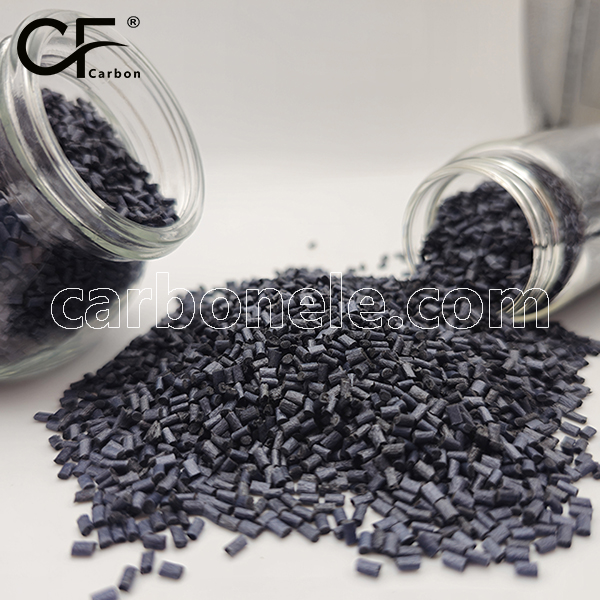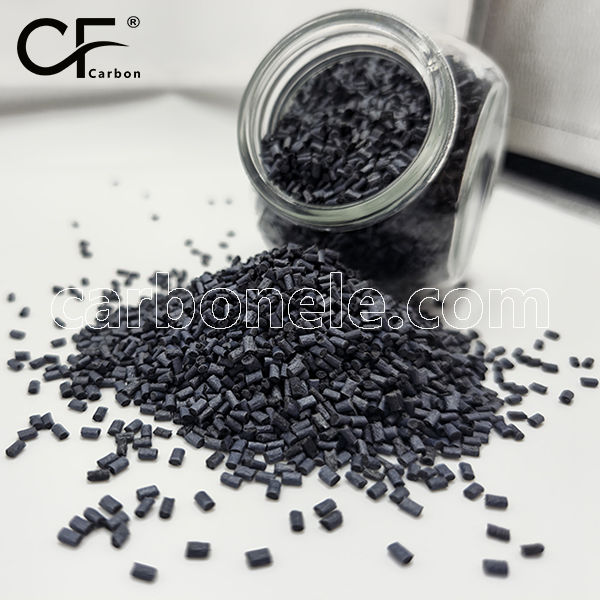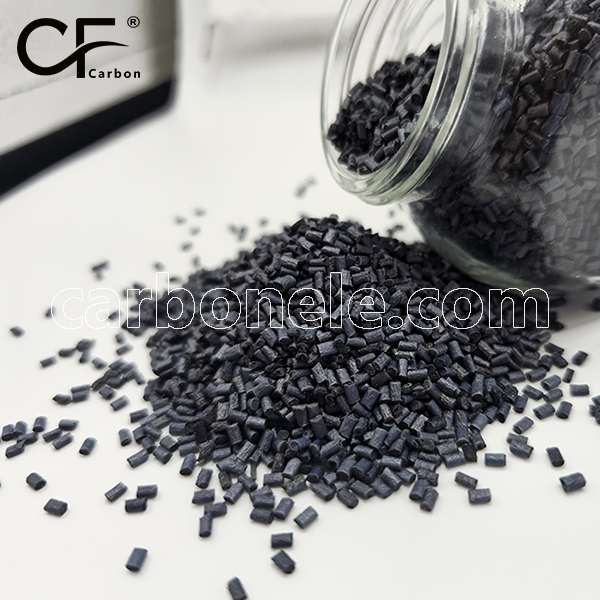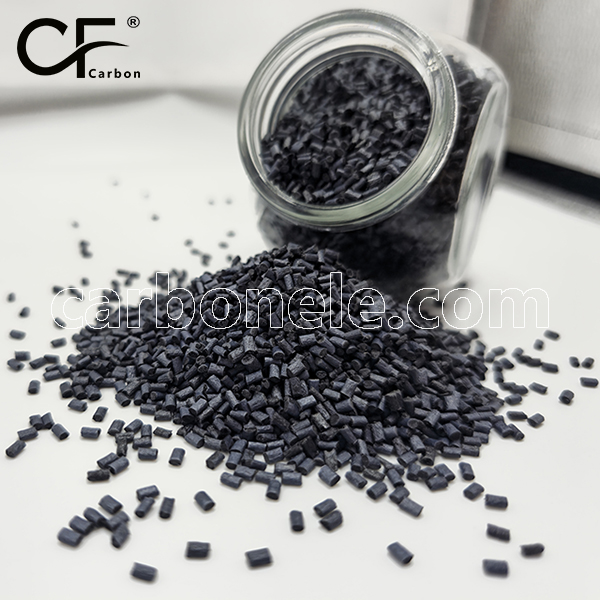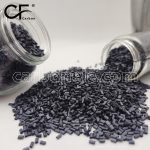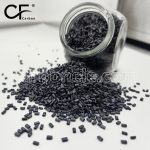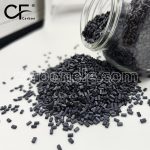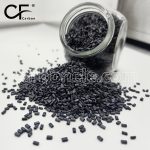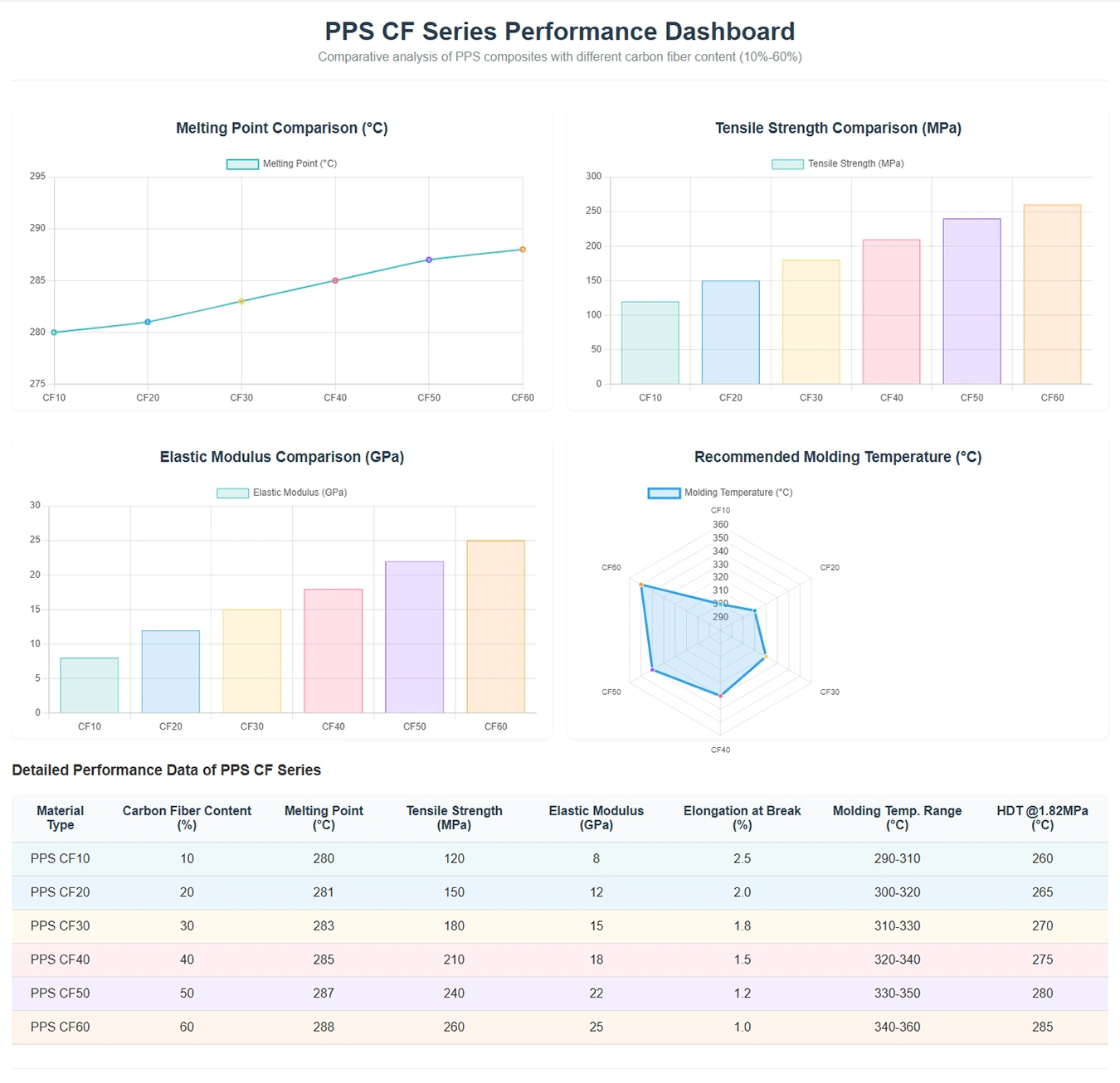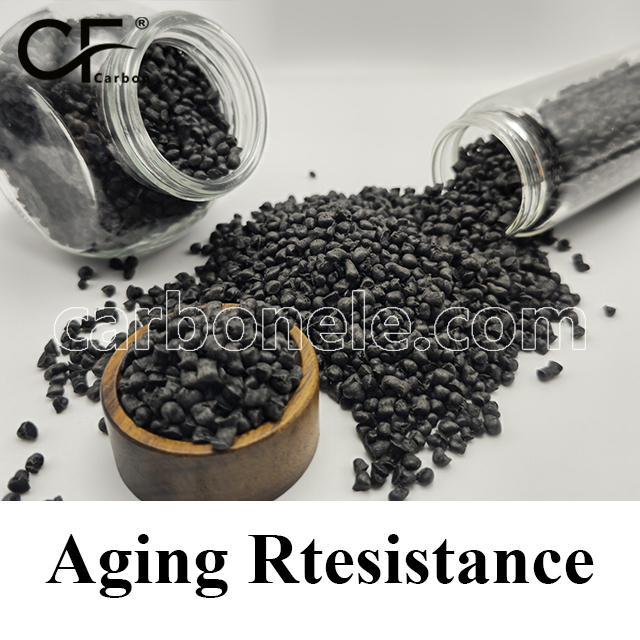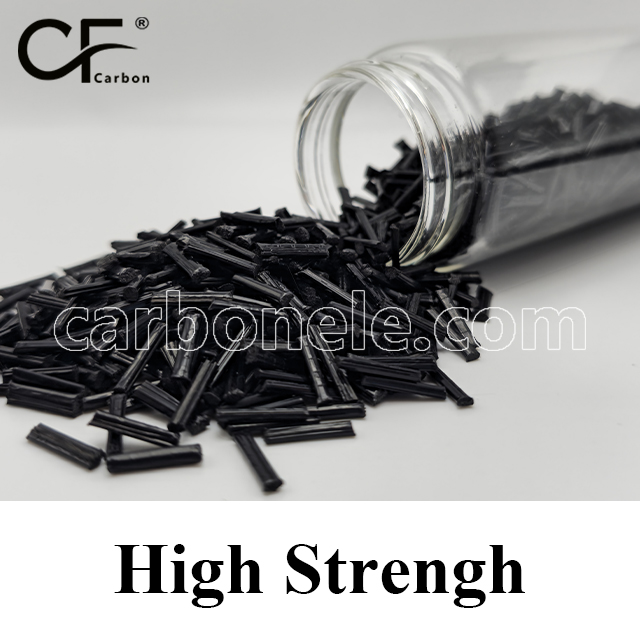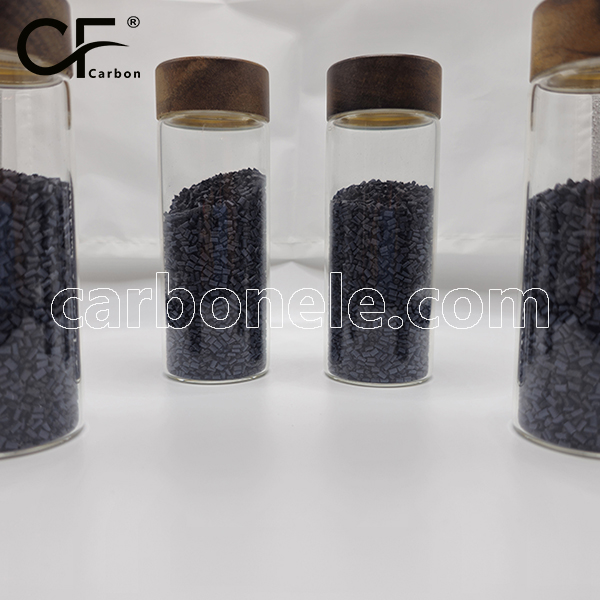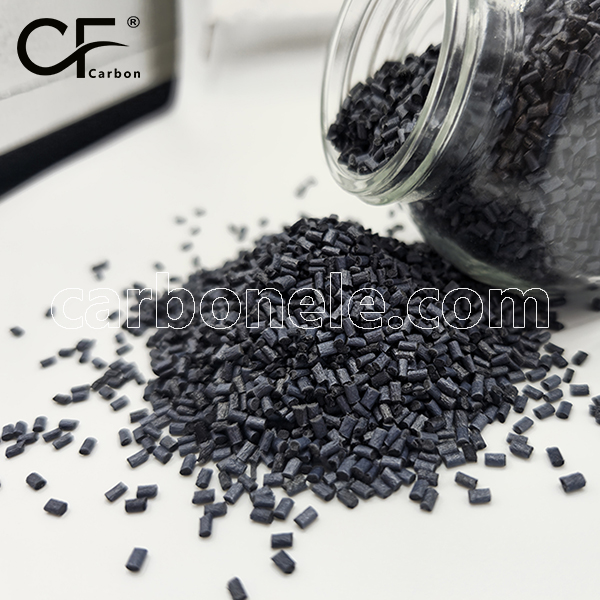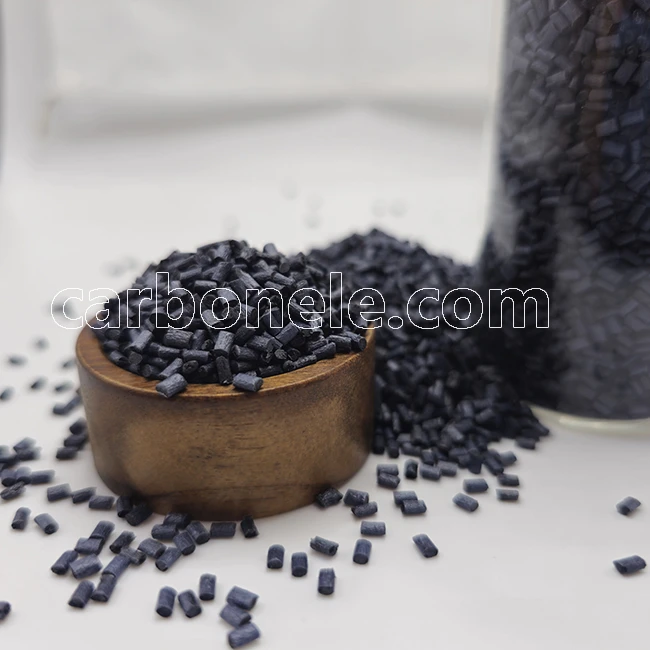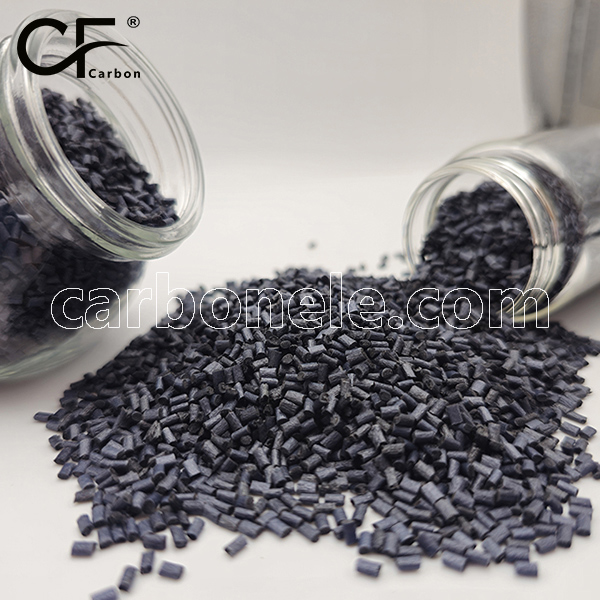
Injection/extrusion Grade CF PPS Engineering Plastic Granules
CF PPS granules: 10-60% carbon fiber reinforced for injection/extrusion. Offers 150-12,000MPa flexural strength, 260°C HDT & EMI shielding. UL-certified for auto/electronics. Custom colors & V-0 flame retardant.
- Manufacturer: Carbon New Material
- OEM/ODM: Acceptable
- Color: Black
- Free samples: ≤10kg
- MOQ: 100kg
- Port: Xiamen
- Model: PPS-CF-BCA3
- Fillers: SCF
Injection/extrusion Grade CF PPS Engineering Plastic Granules represent carbon fiber-reinforced polyphenylene sulfide composite pellets specifically developed for injection molding and extrusion processes. This CF PPS material significantly enhances mechanical strength and dimensional stability while preserving PPS resin’s inherent chemical resistance and flame retardancy through optimized fiber dispersion and interfacial bonding technologies, making it ideal for automotive, electronics, and industrial components.
Performance Characteristics by Carbon Fiber Loading
-
10% CF PPS
Base reinforced grade with 150MPa flexural strength (80% improvement over pure PPS), suitable for general structural parts -
20% CF PPS
Balanced formulation with 260℃ HDT (1.82MPa), ideal for temperature-resistant housings -
30% CF PPS
High-rigidity version offering 12GPa flexural modulus, replacing metal in load-bearing components -
40% CF PPS
Conductive grade with 10³-10⁵Ω surface resistivity for EMI shielding -
50% CF PPS
Ultra-low wear type with 3.5MPa·m/s PV value, perfect for bearings/gears -
60% CF PPS
Aerospace-grade with 1.2W/mK thermal conductivity for heat dissipation structures
All CF PPS grades are UL-certified and available in standard 1-3mm pellets, with customizable colors and flame-retardant levels (up to V-0). The 30% CF PPS has been mass-adopted in NEV battery modules, achieving 35% weight reduction versus aluminum while passing 2000-hour salt spray tests.
Surface Resistivity Comparison
Conductors < 10⁵ Ω/sq. Antistatic Materials 10⁵ ~ 10¹² Ω/sq. Insulators > 10¹² Ω/sq. Static-Dissipative 10⁶ ~ 10¹¹ Ω/sq. *Key Influencing Factors Humidity: Increased moisture can reduce resistivity (e.g., in polymers). Temperature: Affects carrier mobility (↑ heat may lower semiconductor resistivity). Surface Contamination: Dust/oils alter readings significantly. Additives: Carbon black, metallic fillers can lower resistivity. *Applications Electronics: Antistatic materials (10⁶–10⁹ Ω/sq) prevent electrostatic discharge (ESD). Aerospace: Composites must control resistivity to avoid charge buildup. Medical Devices: Insulating materials (>10¹² Ω/sq) ensure patient safety. *Examples Polypropylene (PP): ~10¹⁶ Ω/sq (excellent insulator). Carbon Fiber Composites: 10³–10⁶ Ω/sq (static dissipation). ESD Flooring: 10⁶–10⁹ Ω/sq.
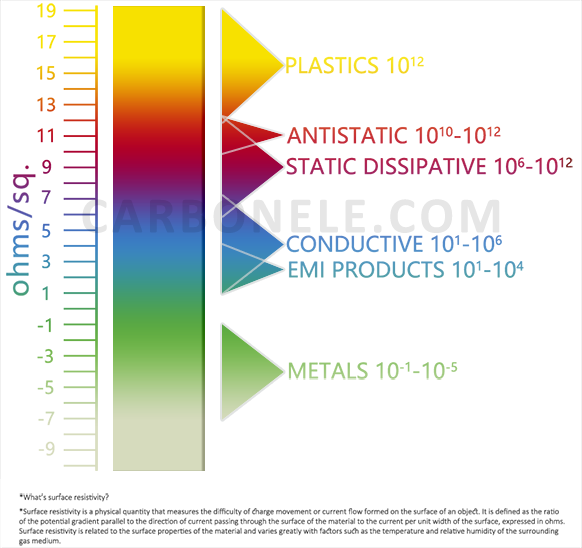
Get to Know Carbon Fibers
The table presents key performance data of carbon fiber grades. T300, with a tensile strength of 3530 MPa and a tensile modulus of 230 GPa, has a relatively low tensile elongation at break of 1.5% and a body density of 1.76 g/cm³. As the grade increases, for example, T700S shows an enhanced tensile strength of 4900 MPa compared to T300, while maintaining the same tensile modulus but with a higher elongation at break of 2.1%. T800S and T1000G both have a tensile modulus of 294 GPa, and their tensile strengths are 5880 MPa and 6370 MPa respectively. T1100G stands out with the highest tensile strength of 7000 MPa and a tensile modulus of 324 GPa. Generally, with the increase in product grade, the tensile strength and modulus tend to rise, while the density remains relatively stable around 1.8 g/cm³.
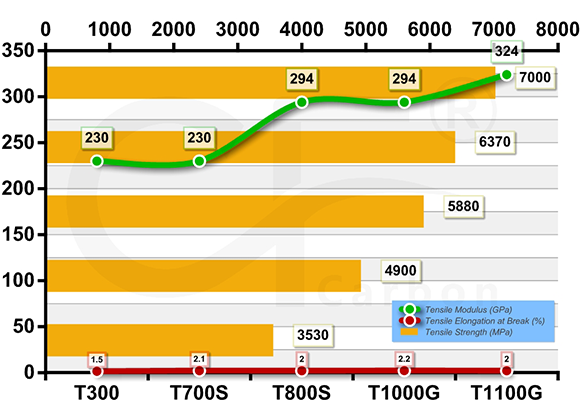
How to Buy?
If you want to obtain information such as product specifications, performance, and price, choose a suitable product according to your own needs. Meanwhile, you can ask the manufacturer to provide samples for testing to ensure that the material meets your usage requirements. If you are interested in purchasing this composite material, please contact the manufacturer Carbon (Xiamen) New Material directly.
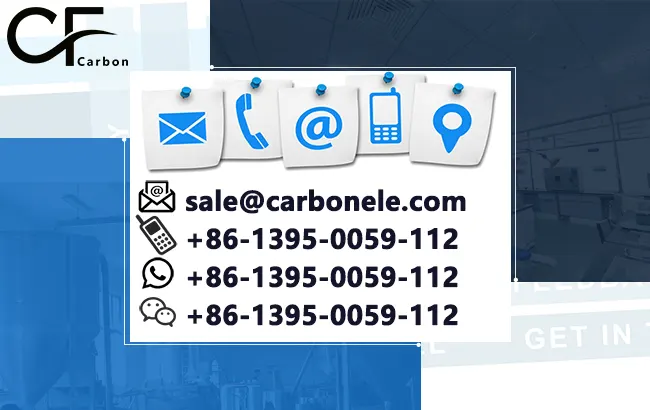
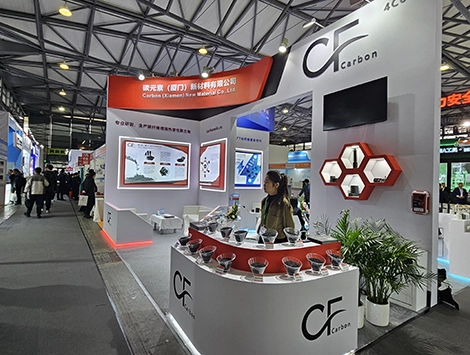

Frequently Asked Questions
Carbon (Xiamen) New Material Co., Ltd. aims to provide buyers with "one-stop" worry-free high-quality services. Here you can find all information about carbon fiber engineering plastics. If you still have questions, please send us an email for consultation!
-
How can I contact the manufacturer of a product that interests me?
When you find a product you are interested in, you can contact the manufacturer directly by sending an email and we will get back to you as soon as possible.
-
How do I find the products that interest me?
All you need to do is enter the keyword, product name in the search window and press the Enter key on your keyboard. Your search results page will then be displayed. You can also search within the product category pages on the home page. Each category is divided into subcategories, allowing you to refine your search and find products that interest you.
-
Where will I find a buying guide?
Please contact our after-sales service directly and we will provide you with a comprehensive operating guide.
-
What are CF Reinforced Thermoplastic Composites?
CF Reinforced Thermoplastic Composites are materials where carbon fibers are incorporated into a thermoplastic matrix. They combine the strength and stiffness of carbon fibers with the processability and recyclability of thermoplastics. For instance, they are used in automotive parts like bumper beams.
-
What are the benefits of CF Reinforced Thermoplastic Composites over traditional composites?
The key benefits include faster production cycles, easier recyclability, and better impact resistance. They also offer design flexibility. An example is in the manufacturing of consumer electronics casings where complex shapes can be achieved more easily.
-
How are CF Reinforced Thermoplastic Composites processed?
Common processing methods include injection molding, extrusion, and compression molding. Injection molding is widely used for mass production. For example, in the production of small components for the medical industry.
-
What industries use CF Reinforced Thermoplastic Composites?
They are utilized in aerospace, automotive, medical, and sports equipment industries. In aerospace, they can be found in interior components. In the medical field, they might be used in prosthetics.
-
How does the carbon fiber content affect the properties of the composites?
Higher carbon fiber content generally leads to increased strength and stiffness but may reduce ductility. A moderate content is often balanced for specific applications. For example, a higher content might be preferred in structural parts of a race car.
-
What are the challenges in using CF Reinforced Thermoplastic Composites?
Challenges include higher material costs, complex processing equipment requirements, and ensuring uniform fiber dispersion. Issues with adhesion between the fibers and the matrix can also arise. An example is in achieving consistent quality in large-scale production.







